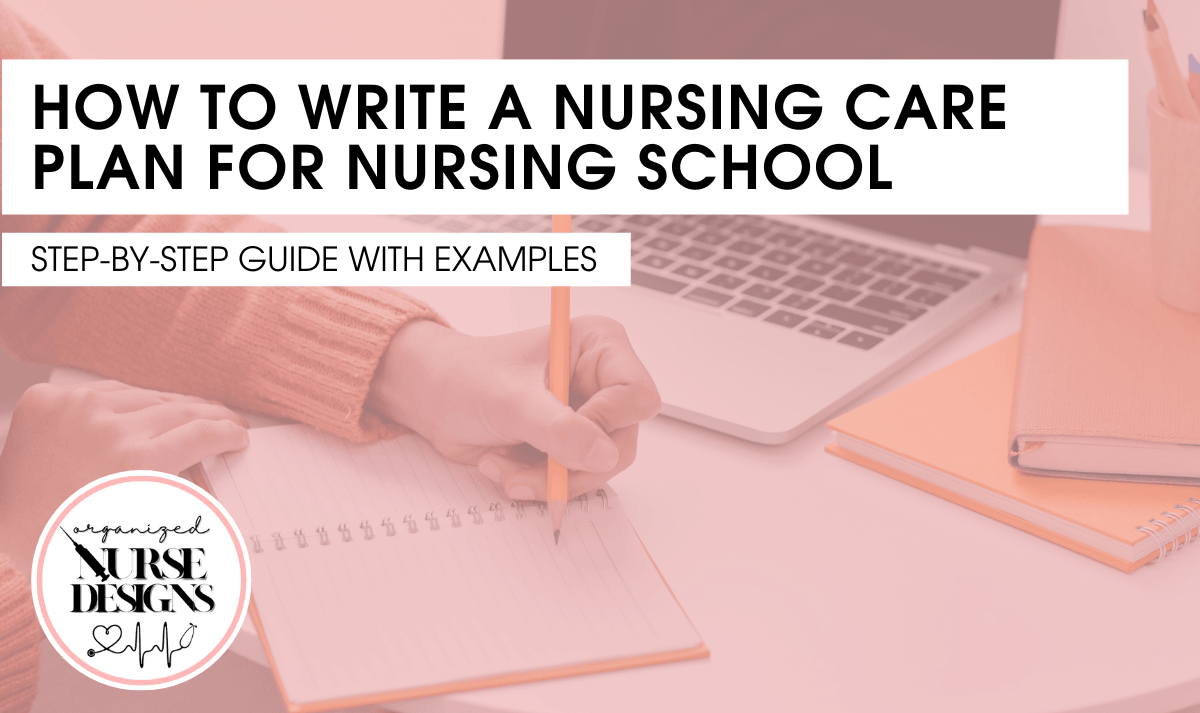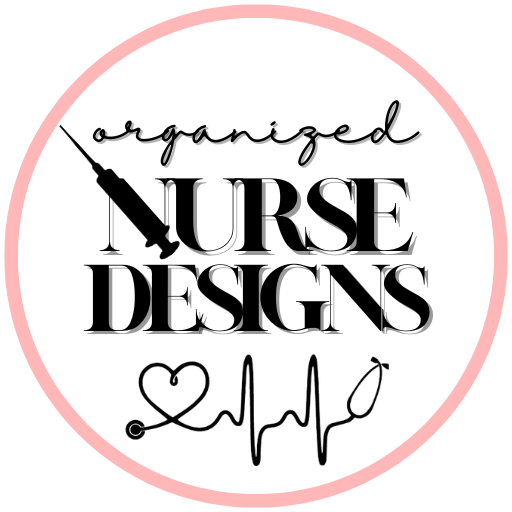Nessa, RN - December 6, 2022
5 Note Taking Tips to Succeed in Nursing School

Learning how to take efficient notes makes a huge difference in your experience in Nursing School. Good notes can help you ace your tests with ease and reinforce vital information that you’ll use throughout your entire career as a nurse. As you might have guessed ”How to take notes 101” isn’t a course offered in the nursing curriculum– that’s why I’ve put together my top 5 tips on how to take notes for nursing school:
Tip #1: Skim the Textbook
More often than not you’ll find yourself with more assigned reading than what you can actually tackle– before you start burying your nose in your book, do a skim of the textbook to pull the most important information. Textbooks make it easy to locate the key concepts, look for:
- Tables, pictures, figures, and illustrations (don’t forget to review these because professors love to make test questions with these.
- Highlighted/bolded vocabulary
- Study questions and summary points at end of the chapter. These are there to show you what you should know after reading the chapter.
Tip #2: Active Listening in Class
Make sure you don’t just show up to class and passively listen to the lecture while you’re scrolling on social media. Professors give lots of hints throughout their lessons on what information is important or could be on the test.
- Stay focused on what your professor mentions during the class
- Listen for key phrases like “You should know this,” or if they keep repeating the same topic, it indicates it is important and may be on the test)
- Star anything that came up during the class to review later.
Tip #3: Review Notes within 24 Hours
It’s not only learning about how to take notes but also how to make the best use of the notes you do take. You’ll want to review your notes directly after your lesson if possible, if not try to go over your notes within 24 hours of taking them to reinforce them in your mind.
- Review your notes after class to retain the information
- If you can’t review directly, do it within 24 hours of your class
Tip #4: Review Essentials in Textbook
When you’re reviewing your notes you might find that something is unclear, take some time to go into the textbook and look up anything unclear. Then add the new information to your notes so that the next time you review them you have all the information you need.
- Use the textbook to look up anything you don’t fully understand or need more explaining
- Add the new information to your notes
Tip #5: Write Your Notes in the Way You Understand
How you organize your notes should be done in a way that works for you. Be it color coding, highlighting different information, underlining what’s important, etc. Find the way that works for you and stick to it.
- You don’t need to write every word from your professor's presentation, rather take the key points and elaborate where needed.
- Color code notes to help you stay organized and find information easily:
- Use one color for your notes from class– the majority of the writing will be this color
- Star, underline, or highlight what the professor says is important
- Use a different color for notes from the textbook

This is an example of my notes taken in class versus revision after class.
Taking the time to learn how to take notes is an investment as a nursing student that will repay itself tenfolds. You’ll be amazed at how much it makes a difference, you’ll retain information easier and spend less time cramming before exam day. Overall taking notes the right way from the beginning will make your student life less stressful, and help you stay on top of your grades.
Happy studying future nurses, xoxo
P.S. I help students minimize stress and save time by providing simplified nursing school content. Having a social life while attending nursing school IS possible with the right tools and resources. Start studying smarter, not harder with these simplified nursing school study guides:

Join Our Nursing Club
Free study guides, nursing school tips, and stories delivered right to your inboxSecure Checkout With

Copyright © 2023 OrganizedNurseDesigns. All Rights Reserved.
Related Posts

How-to Interpret Arterial Blood Gases: Step-by-Step Guide for Nurses & Nursing Students
ABGs are important because they provide a valuable snapshot of a patient’s pH and oxygenation. A patient’s PaCO2 and PaO2 levels directly influence the levels of oxygen and metabolic processes in the cells. When an ABG reveals an abnormally low or high PaO2, the clinician can diagnose hypoxemia or hyperoxemia, respectively.

How-to Write a Nursing Care Plan
The elements of a nursing care plan are also known as the nursing process (ADPIE). Using the nursing process to formulate your care plan will help connect the dots.
